News story
Accountability, Ambiguity and Agency: Leaders to the Future share perspectives on new and emerging technologies
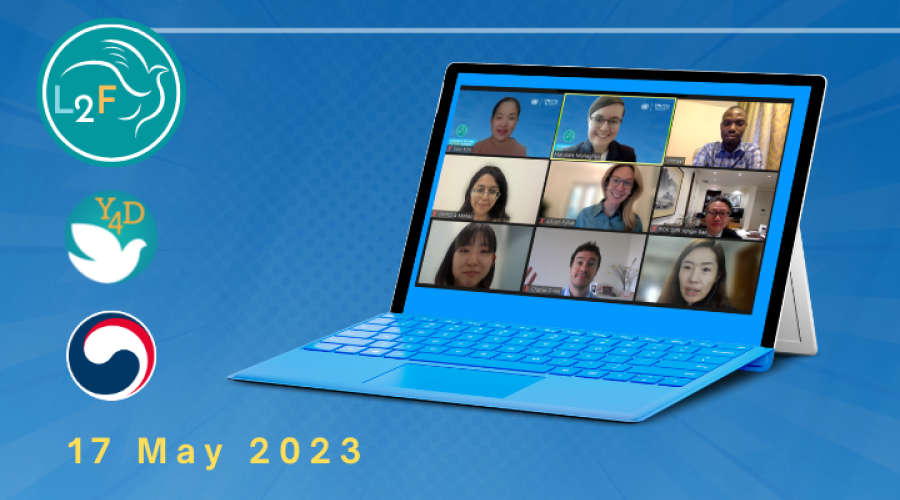
On Wednesday 17 May, the Leaders to the Future gathered online to learn about the potential opportunities and challenges posed by new and emerging technologies to mark World Telecommunication and Information Society Day.
The annual International Day provides an opportunity to discuss the advantages of using the internet and other information and communication technologies (ICTs) to build more sustainable societies, as well as the need to address and manage the potential challenges posed by emerging technologies.
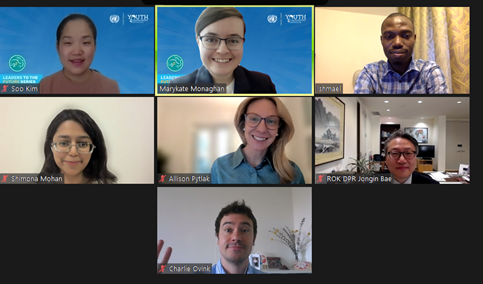
His Excellency Ambassador Jongin Bae, Deputy Permanent Representative of the Republic of Korea to the United Nations, opened the session by highlighting his country’s strong support in facilitating and participating in multistakeholder discussions on emerging technologies. He noted that the blurring line between truth and fiction, caused by the advancements in Artificial Intelligence (A.I.), could pose the most elusive and intractable weapon against free, open and democratic societies. Ambassador Bae stressed the need to involve youth in key discussions ongoing on A.I. and other technologies, as they are best placed to devise long-term, sustainable solutions for the current transition into a digital age.
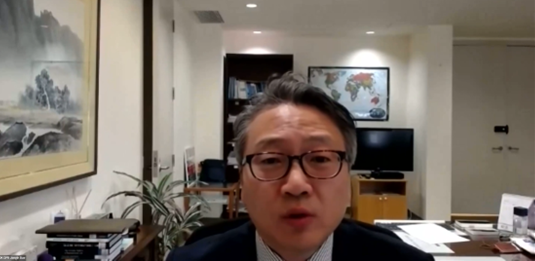
Mr. Charles Ovink, Political Affairs Officer with the United Nations Office for Disarmament Affairs, provided a clear and concise briefing on the concept of responsible innovation. The group participated in several interactive exercises to explore current discussions on A.I. and the potential implications of data biases. Mr. Ovink also stressed the important need to build the capacity of the next generation of innovators, designers, and practitioners to carry out responsible innovation and build towards a safer, more secure and peaceful world.
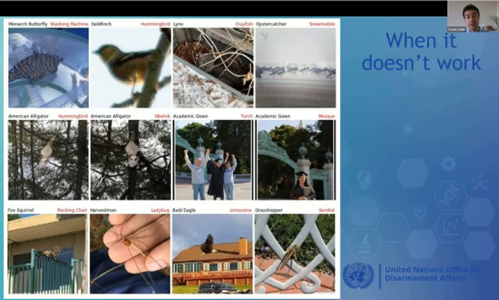
Ms. Allison Pytlak, the Program Lead of the Cyber Program at the Stimson Center, provided an historical overview on the work of the United Nations in establishing norms on ICTs and responsible state behavior in cyberspace. Ms. Pytlak then presented the research being conducted by the Stimson Center on potential avenues to advance norm-building on cyber-related issues, before providing a summary on how the term ‘accountability’ can be understood differently by stakeholders and impact efforts to establish a safer, more secure cyber space.
Ms. Shimona Mohan, Leader for Tomorrow and Leader to the Future, shared her extensive research on lethal autonomous weapons systems (LAWS), as well as her work on the intersecting and gendered dimensions of security and technology policy. She also presented on her project conducted in 2022 to engage, educate, and empower youth on the cross-cutting topics of gender, disarmament, and new and emerging technologies. Ms. Mohan noted that the online workshop engaged an interdisciplinary and intergenerational audience and stressed the need to visualize linkages between topics to provide entry points for more stakeholders to participate in discussions related to disarmament.
Mr. Ishmael Bhila, a representative from the Stop Killer Robots Campaign, provided an informative overview of the organization's work to call for new international law addressing the topic of autonomy in weapons systems. Mr. Bhila highlighted the growing use of emerging technologies in everyday life, such as automated passport booths at airports and face detection for entry ways, to emphasize the potential danger if the technologies were used in weapons systems or other security contexts.
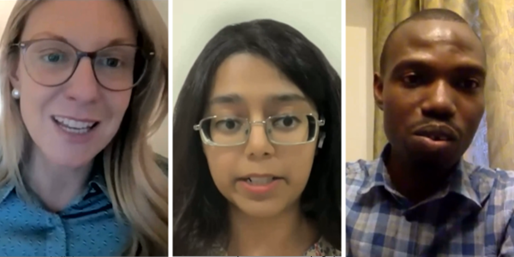
Following the series of presentations, the Leaders to the Future participated in a lively question-and-answer session with Ms. Allison Pytlak, Ms. Shimona Mohan, and Mr. Ishamel Bhila on the latest developments and trends in the disarmament field, including LAWs, fictional images generated by A.I., the potential development of insert brain chips and the consequent military implications from such technologies.
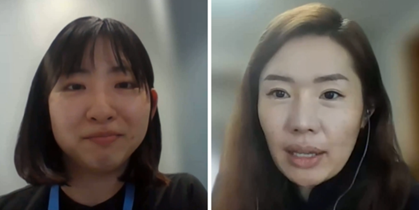
Then, the young leaders continued the discussion in small, breakout groups by sharing their own interpretations of new and emerging technologies and exploring ways for young people to support efforts to encourage responsible innovation and address the spread of disinformation on social media. The findings will be published in a set of recommendations to be presented during the participants’ upcoming study visit to UN Offices in July. Through exploring the different uses of emerging technologies, the Leaders to the Future will work together to advance their collaborative ideas for a safer, more secure future for current and future generations.